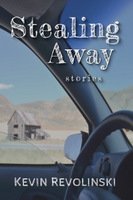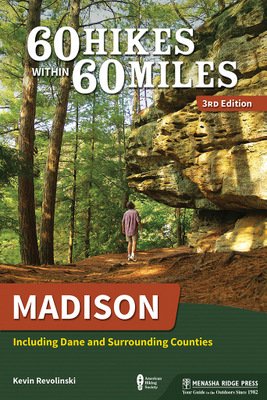The Mad Traveler Reading List 2011
“You can cover a great deal of country in books.” — Andrew Lang
I firmly believe one can and should travel by entering into the pages of a good book. Whether on the road or on the couch at home, I like to keep new things entering my head.
A Time to Keep Silence by Patrick Leigh Fermor
Travel writer Fermor passed away in 2011, so I thought I’d read him in memoriam. This is one of his shorter books and chronicles his visits to three monastic communities (two of them still active) to experience the cenobitic life. Karen Armstrong (A History of God) gives us some thoughts on the work in the foreword. Fermor’s descriptions of his surroundings are vivid and the historical background of the two monasteries in France is certainly interesting. He brings his own feelings a bit — especially the shock of first going in and the subsequent reverse culture shock of coming back out, but so much as to be self-indulgent. The tedium of monastic life could affect a larger work, but this is thankfully under 100 pages and knows when to quit. The third section deals with an abandoned monastery in Cappadocia, Turkey, a nice turn at the end.
Cleopatra: A Life by Stacy Schiff
One of my favorite historical reads of the year, I wrote a longer review of it here.
Egypt: A Short History (New in Paper) by Robert L. Tignor
A really nice readable overview of Egyptian history, from before the Pharaohs right up into Mubarak (but not into the Arab Spring). Read my longer review here.
Dark Star Safari: Overland from Cairo to Capetown by Paul Theroux
Theroux revisits Africa many years after his time living there. As usual, he pulls no punches, brings in a variety of historical anecdotes along the path, and keeps the reader entertained without taking matters lightly.
Cloud Atlas: A Novel by David Mitchell
Just a fantastic novel of intertwined stories that span from the 19th century Pacific sailing days to a future dystopia in Korea and beyond. I am latecomer to Mitchell. He has already gotten shortlisted for Booker prizes and the like on multiple books. This novel has some dismal moments examining the darker side of humanity but reaffirms the hopes and goodness that always manages to carry forward through even the lowest moments of “civilization”. Mitchell effortlessly switches style and character at times reminding me of Melville or Pynchon or even the classics of science fiction.
The Ornament of the World: How Muslims, Jews and Christians Created a Culture of Tolerance in Medieval Spainby Maria Rosa Menocal
Too often the period of history when Andalusia, Spain was occupied by the Muslims is spoken of negatively, the invasion of “the Moors”. The reality, however, was that this period of history was in fact a high point for culture, arts, and philosophy. In present day, when some insist the major religions cannot get along, this story reminds us that that is certainly not inevitable. Toledo, Granada, Cordoba had some of their finest moments when Muslims, Christians, and Jews lived amongst each other and shared culture and language in such ways that the lines of distinction weren’t always so clear. This book would make a great traveling companion in Spain. Great read for history buffs.
The Great American Detox Diet: Feel Better, Look Better, and Lose Weight by Cleaning Up Your Diet by Alex Jamieson
Not bad, pretty decent collection of recent health information regarding diet, plus some good recipes at the end. After watching Supersize Me, I was compelled to check it out. (She’s the fiance of the documentarian who eats himself sick on McDonald’s for a month just to make a point.)
A Small Hotel: A Novel by Robert Olen Butler
Pretty good. Very inside the heads of a couple struggling with betrayal and communication. Not my favorite of his, however. They Whisper and his Pulitzer-winner A Good Scent from a Strange Mountain: Stories
Crooked Letter, Crooked Letter: A Novel (P.S.) by Tom Franklin
Fantastic literary mystery that deals with small town southern life, ostracism, and racism. Bought it for a flight out of O’Hare and read most of it going, the rest of it coming home. It was nominated for an Edgar award. Some of the imagery sticks with me still. Great writer.
Half a Life: A Novel by V. S. Naipaul
Balthasar’s Odyssey (review) by Amin Maalouf
A great historical novel centered around a fictional character in and around the Ottoman Empire. Maalouf is a master of this genre. Read my full review here.
Plowman’s Folly by Edward Faulkner
Does a farmer really need to plow the fields for planting? Faulkner says no and backs up the claim with reason and real life practice. These are ideas are incredibly important in our new world of agribusiness. Written in 1943! Good luck finding a copy.
In the Name of Identity: Violence and the Need to Belong by Amin Maalouf
A great novelist, Maalouf writes some fine nonfiction as well. He was born Christian in Lebanon but emigrated to France. He has a lot to say about identity, and asks some thought provoking questions about who we are and where we are heading.
A Palace in the Old Village: A Novel by Tahar Ben Jelloun
In this short novel, an old Moroccan man who has worked for years as an immigrant laborer in France, longs to return to his home saved earnings, build himself a “palace” and take in his family — it’s what he’s worked for and lived for. But so much has changed — the ideas of family, individualism, identity — and he soon realizes it’s not going to turn out exactly as he had hoped.
The One-Straw Revolution: An Introduction to Natural Farming (New York Review Books Classics) by Masanobu Fukuoka
Not just a book about a Japanese farmer’s insightful farming methods that work harmoniously with nature. It is also a subtle but potent philosophical work. I talk about it a bit in a blog post about the future of food and things I’ve seen in my travels.
Mushrooms, Myth and Mithras: The Drug Cult that Civilized Europe by Carl Ruck
What were those ancients smoking? Ruck is a notable name in the study of mind-altering substance uses in Classical Times. This time he explores the Mithraic Cult in Europe and the Middle East. I wish I had read this before coming across the various ruins of Mithras during my travels. Books like this make you realize how cleansed and simplified our stories of history have become. The War on Drugs started a lot longer before you think.
Requiem: By the Photographers Who Died in Vietnam and Indochina by David Halberstam
I found this in the Afterword of The Lotus Eaters (below) and picked it up at the library. As the title indicates, the photographers in this book all were killed in Vietnam or Cambodia during and after the Vietnam War (as we American’s know it). The photo collections are incredible. Some touching, some shocking, and all of them reminders of the brave (sometimes foolish) souls who made sure what happened over there was recorded for everyone to see.
The Lotus Eaters: A Novel (Reading Group Gold) by Tatjana Soli
War photographers talk of the addiction to that thrill of getting the photos in a war zone. This novel is about a rare female photographer in the Vietnam War (yes, there really were some) trying to find herself and her purpose, and then fighting for respect in the midst of the chaos of the war. Two men from very different worlds fall for her. Is it a love story? In one respect, yes, I suppose, but it never becomes sentimental, and the disturbing issues of what drives us to court danger and how we become desensitized to violence are never playing second fiddle. See last year’s read for a phenomenal nonfiction read about the Vietnam War.
The Museum of Innocence (Vintage International) by Orhan Pamuk
Turkey’s Nobel Prize-winning author pens a novel about a man looking back on a life-changing affair with a distant cousin. Set in Istanbul as it starts to edge into Western modernity.
The Mad Traveler’s 2010 Reading in Review: Book Recommendations


 ORDER YOUR COPY TODAY!
ORDER YOUR COPY TODAY! ORDER YOUR COPY TODAY!
ORDER YOUR COPY TODAY!
Pingback: 2011 Reading in Review: Book Recommendations